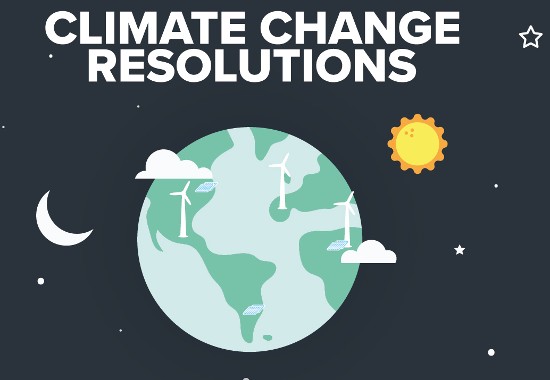One of the great challenges for the average consumer about climate change is to find a way to make it personal. Here in Canada where we pay a carbon tax at the gas pump, the cost is hidden within the total price of each fuel purchase. We don’t really feel the involvement in taking action to address climate change personally.
Governments seem to be doing their best not to let climate change become a personal project for the average citizen. I don’t know why this is the case. Why aren’t governments creating websites and applications that help the average consumer calculate his or her personal carbon footprint? Why aren’t governments asking manufacturers of everything we purchase to add the carbon contribution to product labels? Why aren’t governments mobilizing citizens to get involved as volunteers working on conservation and restoration projects in their local communities?
Yesterday I attended a monthly meeting of the local Toronto chapter of the Citizens’ Climate Lobby, a global not-for-profit with a focus on getting governments to address climate change with greater urgency than the current pace of actions and commitments coming from the Glasgow COP26 Climate Summit.
From our Zoom call, I realized that everyone there was committed to challenging climate change causes and effects with great ideas and suggestions for activities going into 2022. So I thought I would make my own contribution in terms of suggested New Year’s resolutions that you may want to adopt in part or all in the coming year. I chose 12 to match the 12-days of Christmas song because I’m always musically motivated. You won’t be able to hum the song to these, unfortunately, but thinking about the song may make you remember climate change resolutions as 2022 unfolds.
12 New Year’s Resolutions for Dealing with Climate Change
- Assess your personal carbon footprint by looking at your consumption patterns and begin to find ways to make changes that will produce carbon reductions.
- Resolve to alter your diet to eat less carbon-intensive choices. This is a hard one for many but small changes (even a few meatless meals a week) can reduce your personal carbon footprint.
- If you can, downsize your living accommodations when you find yourself with surplus space. Again, this can be hard to do for homeowners who when they become empty nesters still feel a sentimental attachment to their homes. But do you need to be heating and cooling empty rooms once the kids have flown the coop?
- Do you need a second car? Most of the time the vehicles you own are never driven. So if you must have a personal vehicle and there are legitimate reasons for this, particularly if you live in rural areas where transportation alternatives are scarce, consider going to a hybrid where you can’t plug in, a hybrid-electric where you have limited capacity to plug-in, or all-electric or fuel-cell-powered vehicle.
- Make your concerns about the lack of progress addressing climate change by phoning, writing, or emailing local municipal government, provincial/state and federal representatives asking them to take meaningful action through legislation.
- Become more educated about climate change and share what you learn with your contacts. I encourage you to use the information I provide on this blog site and look at the links within articles to find additional resources to consult.
- Urge your national governments to end subsidies for oil and natural gas operations, and stop approving new exploratory leases and other fossil fuel projects including pipelines.
- Ask your provincial/state and national governments to address methane release from existing fossil fuel operations.
- Join with others in supporting conservation and restoration projects to improve and expand natural carbon sinks. You may want to get your hands dirty planting trees.
- Find and volunteer with a climate action group in your area. Toronto, for example, has the Toronto Environmental Alliance. Other cities, towns, and counties have similar groups focused on local climate change policies, mitigation and adaptation.
- Before going on a vacation involving travel ask about the total carbon emissions you will contribute. Find a program such as Sustainable Travel where you can make a contribution to a natural carbon sink project to offset the carbon emissions your travel produces. For others check out the Tree Hugger website.
- Talk to young people you know about climate change. See yesterday’s blog posting if you don’t understand why this resolution is important. Climate change is increasingly causing children to develop levels of anxiety that need to be addressed. This is a growing mental health concern and an opportunity through conversation to understand what the impact of climate change is going to have on their lives and futures. If anything this conversation should motivate you to do many of the previous resolutions described above.









